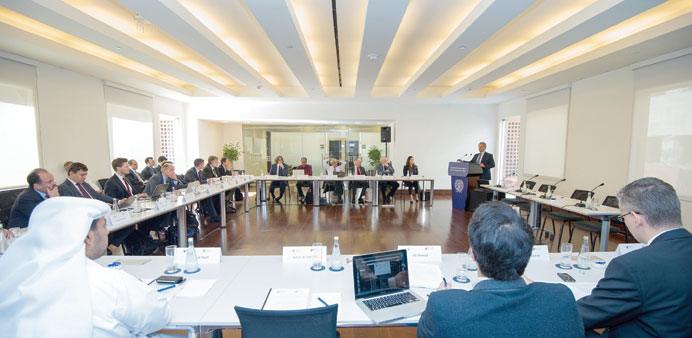The Georgetown University Qatar (GU-Q) has brought together a select group of participants from the US, the European Union and the Middle East to discuss several critical issues under the theme: “Nuclear Technology, Nuclear Energy and a Middle East WMD-Free Zone” at a high-calibre scientific and policy conference held recently at their Education City campus.
The conference was organised in association with Princeton University’s Programme in Science, Technology and Environmental Policy (STEP) and the Institute for the Transregional Study of the Contemporary Middle East, North Africa and Central Asia (TRI).
“Georgetown is proud to have hosted this conference, which brought academics, diplomats, and policymakers together in Doha to debate complex and often thorny issues at the intersection of nuclear energy, nuclear proliferation and regional security,” conference co-organiser and GU-Q for Faculty Affairs senior assistant dean Dr Kai-Henrik Barth said.
Princeton University Public and International Affairs professor Dr Frank von Hippel said: “We seek solutions to energy problems, and these solutions must take regional security concerns into account. In fact, they should lessen such concerns.”
Princeton University was the co-sponsors of the event.
The major themes of the conference, such as regional energy trends, reactor technologies, and safety and regional regulatory co-operation, reflected strong predictions revolving around nuclear energy’s role in the future energy supply of the region, and sparked debate and discussions related to the question of national versus regional or international governance of the fuel cycle.
The two-day event saw the 20 speakers and 10 participants and guests participating in sessions introduced by several short statements from a panel, followed by open debate that directly connected with the discussion about the establishment of a zone free of weapons of mass destruction (WMD) in the Middle East.
Georgetown University will prepare a summary of the conference for publication and dissemination of the discussion’s highlights.
GU-Q has previously tackled the issue of regional Gulf security, as well as the wider issue of nuclear proliferation at several events, such as at a two-day conference organised in association with the British American Security Information Council, a question and answer roundtable for Nato parliamentarians with GU-Q subject matter experts, and at a WMD Awareness Workshop for GU-Q Students.

Academics, diplomats and policymakers taking part in a scientific and policy conference hosted by the Georgetown University Qatar.
